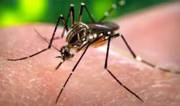
Don't ignore fever, even if dengue test negative
Posted 09 Jul 2024 | Source:
With rising dengue cases, doctors in the city have warned the public not to neglect fever and other symptoms, even if the dengue test comes negative. In addition to dengue, doctors have also noted a surge in infections like chikungunya, waterborne illnesses like Hepatitis A, and respiratory illnesses like RSV, H1N1, and seasonal influenza, all of which exhibit dengue-like symptoms.
As of July 7, the state health department has conducted about 54,820 serum sample tests. However, only 7,165 cases tested positive. Experts highlighted that, while many people must be facing dengue-like symptoms, the timing of the test and the right kind of test is important to know the exact cause and type of infection. "Be extra cautious with food and drinking water consumed outside," said the doctors.
Dr. Swati Rajagopal, Consultant for Infectious Disease and Travel Medicine at Aster CMI Hospital, explained that if an individual experiences sudden high fever, severe headache, pain behind the eyes, muscle and joint pain, nausea and vomiting, and a skin rash in later stages, it is advisable to consult a doctor and get tested.
"Tests for antigen and antibodies can detect dengue infection. However, if a person with febrile illness and symptoms similar to dengue tests negative, it may indicate other viral infections such as chikungunya or Zika," she added.
Experts explained that NS1 or IgM tests can show negative results despite dengue-like symptoms, due to the timing of the test in relation to the onset of the infection, variations in individual immune responses, and the specificity of the tests. Doctors note that the dengue NS1 antigen can be detected by the third day after infection, while IgM antibodies are typically seen by day five.
"Not every symptom of dengue indicates the disease. The severity of symptoms also matters. Many patients might show negative dengue results but may still need close monitoring," the doctors pointed out.
Doctors also flagged a concerning trend of patients trying to treat dengue and other infections on their own. Consulting Physician at Apollo Clinic Dr. Mukesh Budhwani mentioned that dengue can progress to severe conditions like dengue hemorrhagic fever, or dengue shock syndrome, causing hemorrhage, organ failure, and potentially fatal outcomes. "Although early symptoms such as high fever, severe headache, and joint pain may appear manageable, they can swiftly worsen without adequate medical supervision," he added.
Dr. Budhwani explained that self-treatment not only postpones necessary critical care but also worsens the public health crisis, by heightening the risk of complications.
